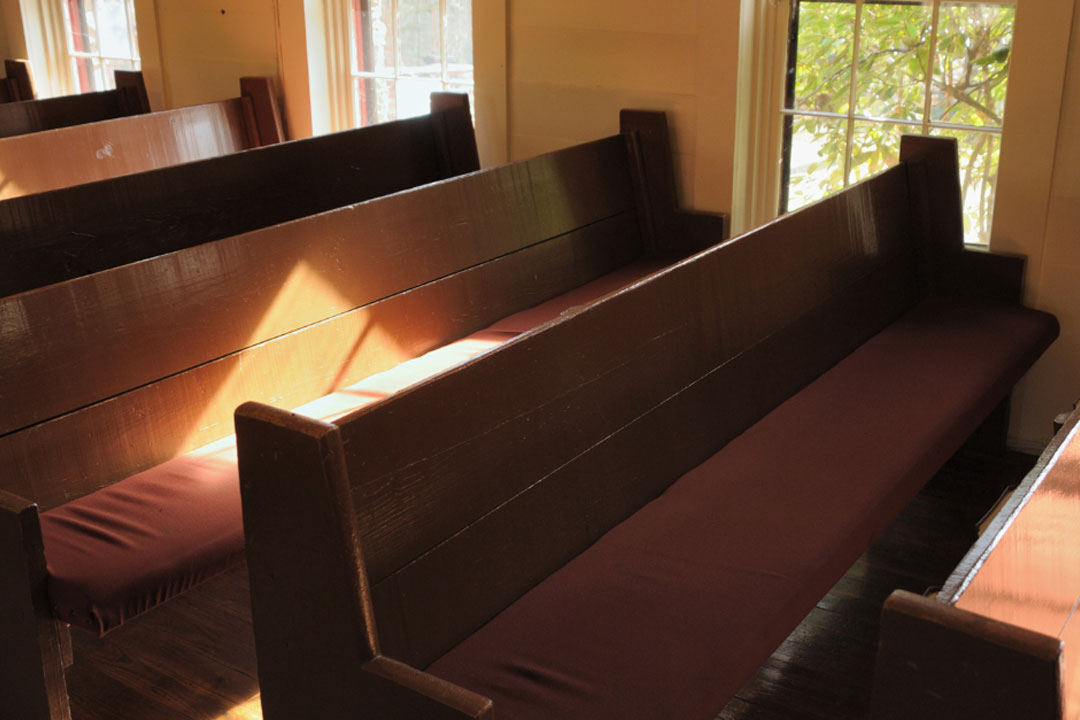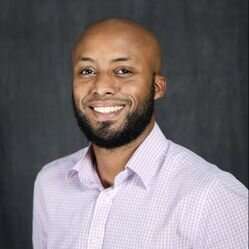Growing up as a black man in rural America, I had the joy and privilege of attending predominantly black churches in my community. My earliest memories of church life involve going to First Baptist to hear Doc Smith and Rev Gentry lead prayer meetings and Bible studies. I sang in the choir, played the piano, and attended Sunday School every week for most of my early childhood years. After a skirmish, my family moved to Centennial Baptist Church for a season before hopping around to other churches. I vividly remember attending revivals and going to Main Street Baptist Church to hear Elder D.J. Ward preach fiery textual sermons that exposited a verse or two of text and carried strong application of the Word. I grew up among black preachers whose preaching was, in the words Martyn Lloyd-Jones, logic on fire.
My family eventually stopped attending a local church, and I went on a hiatus from the church due to my own immaturity and blindness. However, God was not finished with me yet. By age seventeen, I was saved by God’s grace, and soon after, I discovered a new hunger for expositional preaching—preaching the text of Scripture in its context without pretext. Again, I was learning that the Bible was central in preaching. This time, however, I was in a predominantly white context.
Just Preach the Gospel
During the earlier years of my newfound faith, I picked up the notion that the black church was too political but that evangelical churches were all about the Word. In some senses, it was true. There were local black preachers walking in the same vein as Jesse Jackson and Al Sharpton. I saw with my own eyes that black preachers were often at the forefront of political discussions—often to the neglect of the Bible. But even in my parents’ home I was taught that the pulpit is no place for politics. Rather, if a man ascended the holy desk, he ought only to bring the Word of God. That conviction led me to listen to the likes of Paul Washer, John Piper, John MacArthur, Voddie Baucham, and many other preachers who were strong, faithful expositors.
In the local church and through the teaching of some (not all!) of these preachers I found after coming to saving faith, I learned to embrace the notion that we should “just preach the gospel,” and men will change. At a foundational level, I completely agree with this statement. For a man to truly change and walk in repentance, he must first see his reflection in the mirror of Scripture, lament his sinfulness, and cry out to the God of grace for help. Mysteriously, in all of this, the Holy Spirit blows and brings new life (John 3:5; Titus 3:5). God sovereignly uses the preaching of the gospel to draw men to call upon His name and be saved (Romans 10:13). In order to be truly sanctified, a man must first be justified. This is 100% true, and we must never lose what the apostles fought so hard to lay down as a foundation for the church of God.
When racial tragedies occurred in our nation, there were many Christians—especially black Christians across denominational lines—calling for changes to our laws and legal system. This was especially true when law enforcement officers killed unarmed black people on camera for us all to see. Far too often, the response from our politically conservative Christian brothers and sisters was, “Changing laws can’t change hearts, so we need to just preach the gospel if we want to see real heart change.” One doesn’t have to be a political liberal to find fault with this sentiment.
The issue is not that the statement is completely untrue. Sinners need new hearts in order to stop sinning and living according to the ways of the flesh (Ezekiel 36:26–27; Titus 3:5). This is undeniable in Scripture. Rather, what’s wrong is the apparent desire to let sin continue in the public sphere without changing the laws or other structures that could provide protections to society from these kinds of sin. The statement to “just preach the gospel” seems to indicate that God can’t or doesn’t restrain outward sin through civil laws and the just enforcement of those laws. And as we will soon see, this philosophy about civil laws doesn’t seem to apply in other cases.
A Subtle Shift?
In 2020, “Just preach the gospel” wasn’t enough anymore. Before the 2016 election, many evangelical leaders decried the notion that Donald Trump would be elected president. Several of those same leaders demanded that faithful Christians vote for Donald Trump in the 2020 election. They promised that the Supreme Court could change. The abortion laws may shift in favor of the unborn, and Christian liberties will be protected under republican leadership.
Don’t mistake what I’m saying here. I rejoice that Roe v. Wade was overturned, and I thank God that the unborn are protected by federal law. I am also grateful that we can freely worship as Christians without fear of government persecution or interference. Without some of the conservative Supreme Court justices, none of this would have happened.
Yet, in my rejoicing, I also feel a twinge of discouragement because many of the brothers I celebrate with on these issues are the same ones who say it’s a slippery slope to call for policy change with regard to racial injustice. To put it another way, if I had said, “Changing the abortion laws won’t truly change the women who want to have abortions; just preach the gospel,” I would be labeled “woke” and cast off as liberal.
This isn’t mere speculation. I’ve seen it firsthand. I’ve been deemed as being too focused on race and influenced by social justice when I call for change against systemic injustice. Yet, these same brothers have said that the school systems are being infiltrated with critical race theory and Marxism. Yet I personally know individual teachers who are firmly against these theories, as I was when I was a teacher. This is where I wish we could slow down and aim for nuance and better discussion.
Political Pulpits
Several evangelical leaders—many of whom have ministries I’ve long enjoyed—seem to have become a lot like the black churches I was warned about in the past. I don’t mean a drift toward theological liberalism or a departure from clear gospel teaching. That can happen in churches regardless of ethnic makeup. Rather, I mean that they have become much more political than I ever imagined. A pulpit that used to be reserved only for expositional preaching has now allowed political and social theories to be included in the sermon. Conferences and speakers that used to be devoted only to exposition and preaching have taken on political tones and even allowed unwholesome speech to be spewed in the name of protecting the sheep.
Paul called Titus to rebuke false teaching sharply (Titus 1:13). We are also called to do justice (Jeremiah 22:3). There’s room for guarding the flock as well as calling the church to take action on hot topic cultural issues. We need to neither bury our heads in the sand nor jump to political hot takes in our preaching. The balance we need will be found in proclaiming the Word of God faithfully and applying that Word toward loving God and loving our neighbors.
This means sometimes responding to social and cultural issues in light of God’s Word by faithfully expositing and applying it. It means calling out the heretical false worldviews that underlie groups like BLM and the Proud Boys. Ultimately, we have to be people committed to preaching the gospel and living in light of it, even when it makes life and ministry uncomfortable for us.
If we let the culture pull us in any direction—left or right—away from the Bible, we are in danger. There has been a shift over the past several years. We can debate whether it’s been to the left or the right. But the most pressing issue is whether we have shifted closer to or further from the Word of God and the gospel. Regardless of the direction, we must ensure that we get back to truth and reject any worldview or political ideology that holds sway over our souls.
Prayer Requests
- Let’s pray that we can find a balance of orthodoxy and orthopraxy in every aspect of life.
- Let’s pray that God would help us keep our pulpits centered on the gospel and God’s Word while being sensitive to the cultural and political realities around us.
- Let’s pray for unity in the truth that transcends political and cultural differences.












